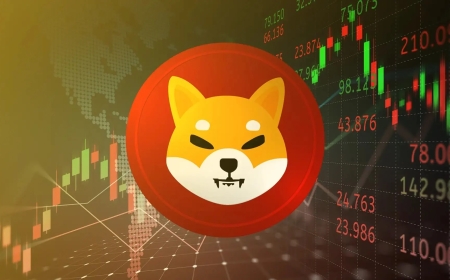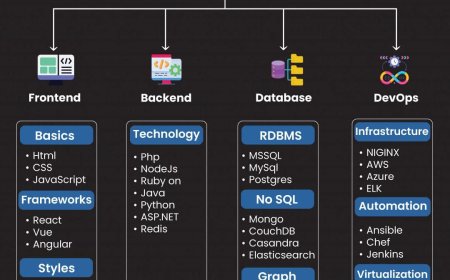Best ESG Reporting Software: The Ultimate Guide to Choosing the Right Solution for Your Business
Introducing our ESG compliance software designed for navigating sustainability challenges. It bridges awareness gaps across diverse frameworks (GRI, SASB, IFRS, ESRS) and manages social and governance aspects in ESG reporting. Simplify prioritization and engage stakeholders for a seamless and impactful sustainability journey.

## Introduction to ESG Reporting Software
Environmental, Social, and Governance (ESG) reporting has evolved from being a niche concern to a critical requirement for businesses across the globe. Investors, regulators, customers, and employees now expect companies to be transparent about their ESG performance. ESG reporting software is designed to help organizations track, manage, and communicate their ESG data efficiently and accurately. But with so many tools on the market, how do you choose the best ESG reporting software for your company? This comprehensive guide will walk you through what ESG reporting software is, why it's essential, the features to look for, the leading solutions available today, and how to choose the right one for your specific needs.
## What Is ESG Reporting Software?
ESG reporting software is a specialized digital tool that helps companies collect, manage, analyze, and report data related to their environmental, social, and governance practices. Instead of relying on spreadsheets or disconnected systems, ESG software offers a centralized, streamlined platform for tracking complex data sets, ensuring data integrity, automating calculations, and preparing reports aligned with key standards such as GRI, SASB, TCFD, CDP, and the EU CSRD.
## Why ESG Reporting Software Matters
The importance of ESG reporting software cannot be overstated. Stakeholders are demanding greater transparency and accountability from companies. Governments are rolling out stricter disclosure requirements. Investors are using ESG scores to guide their capital allocations. Employees and customers prefer companies with strong sustainability credentials. Manual ESG reporting is time-consuming, error-prone, and often fails to meet regulatory or investor expectations. By using dedicated ESG software, companies can ensure accurate data collection, reduce the risk of greenwashing allegations, save time, improve their ESG ratings, and demonstrate their commitment to sustainability and social responsibility.
## Key Features of the Best ESG Reporting Software
When searching for the best ESG reporting software, consider these essential features:
Data Collection and Integration: The software should seamlessly collect ESG data from internal systems, external vendors, IoT sensors, utility bills, and manual inputs. Integration with ERP systems and APIs is critical for avoiding duplication and errors.
Framework Support: The best ESG reporting tools support major frameworks and standards such as GRI, SASB, TCFD, CDP, UN SDGs, and local regulations like CSRD. This ensures your reports are compliant and recognized.
Automated Calculations: Software should automate complex calculations like greenhouse gas emissions (Scope 1, 2, 3), energy intensity, waste management metrics, diversity ratios, and governance scores.
Data Quality and Audit Trails: Leading solutions provide data validation checks, version control, and audit trails, making it easy to verify accuracy and ensure regulatory compliance.
User-Friendly Dashboards and Visualizations: Data storytelling is a core part of ESG reporting. The software should offer customizable dashboards, charts, and infographics to make ESG data easy to understand and communicate.
Benchmarking and Scoring: Many ESG tools allow you to benchmark your performance against industry peers or ESG indices. This helps identify gaps and opportunities for improvement.
Collaboration and Workflow Management: ESG reporting involves multiple teams. Good software includes role-based access, approval workflows, and collaboration features to streamline teamwork.
Reporting and Disclosure Tools: The software should generate ready-to-submit reports aligned with standards or customized for internal and external stakeholders.
Scenario Analysis and Forecasting: Advanced ESG software offers scenario planning tools to model future ESG risks and opportunities, supporting strategic decision-making.
Security and Compliance: ESG data can be sensitive. Top solutions offer robust security, encryption, and compliance with data privacy regulations like GDPR.
## Top ESG Reporting Software Solutions in 2025
Heres a look at some of the best ESG reporting software solutions available today. Each has its own strengths, so the right choice depends on your organization's size, industry, and goals.
1. Workiva ESG Workiva is a leader in the ESG reporting space, known for its robust integration with financial reporting workflows. It supports a wide range of frameworks, offers powerful collaboration tools, and provides automated audit trails. Workivas platform is particularly strong for publicly traded companies that need to align ESG and financial disclosures.
2. Diligent ESG Diligents ESG solution is part of its broader governance, risk, and compliance (GRC) suite. It helps companies collect and analyze ESG data, map it to frameworks, and prepare disclosures. Diligents strength is its integration with board governance tools, making it popular with large organizations.
3. EcoVadis EcoVadis focuses on ESG ratings and supply chain sustainability. It allows companies to assess and improve their own ESG performance while also evaluating suppliers. Its a popular choice for companies with complex, global supply chains.
4. SpheraCloud ESG SpheraCloud ESG offers enterprise-grade sustainability management features, from emissions tracking to ESG disclosures. It is highly configurable, supporting industry-specific needs, and offers strong scenario modeling tools.
5. Persefoni Persefoni specializes in carbon accounting and climate disclosures. Its AI-driven platform automates emissions calculations across Scope 1, 2, and 3. Persefoni is a top choice for companies focused on TCFD, CDP, and net-zero goals.
6. Envizi (IBM) Envizi, acquired by IBM, is a comprehensive ESG management platform that connects data across environmental, social, and governance pillars. It integrates with other IBM systems and offers advanced analytics, making it ideal for large enterprises.
7. FigBytes FigBytes is designed for integrated ESG, sustainability, and CSR reporting. It stands out for its user-friendly interface and storytelling features that help communicate ESG data in a meaningful way to stakeholders.
8. Novisto Novisto is a modern ESG data management platform with a strong focus on data integrity and framework alignment. Its designed to help companies navigate emerging disclosure rules such as the CSRD and ISSB standards.
9. Benchmark ESG | Gensuite Benchmark ESG (formerly Gensuite) is an established provider of EHS and ESG management tools. It offers comprehensive data management, compliance tracking, and reporting features for ESG teams.
10. Plan A Plan A is a newer ESG software platform that focuses on automating carbon accounting and regulatory reporting. Its gaining traction with companies needing to comply with EU sustainability disclosure requirements.
## Benefits of Using the Best ESG Reporting Software
Companies that adopt best-in-class ESG reporting software gain multiple advantages:
Regulatory Compliance: Automated alignment with disclosure frameworks reduces legal risks and ensures you're meeting regulatory requirements.
Improved Investor Relations: Accurate, transparent ESG data improves investor confidence and access to sustainable finance options.
Operational Efficiency: Automation reduces manual effort, freeing up ESG teams to focus on strategy and improvement.
Enhanced Reputation: Demonstrating ESG leadership can boost brand value, attract customers, and support talent recruitment and retention.
Risk Management: ESG data can help companies identify and mitigate sustainability risks before they impact operations or reputation.
Data-Driven Decisions: Access to reliable, real-time ESG data supports strategic planning and goal-setting.
## How to Choose the Best ESG Reporting Software for Your Business
Choosing the right ESG reporting software depends on your organizations size, complexity, industry, and sustainability maturity. Heres a step-by-step approach:
Assess Your Needs: Start by understanding what you need the software to do. Do you need basic carbon accounting or full-spectrum ESG data management? Which frameworks do you need to report against?
Engage Stakeholders: ESG reporting involves sustainability, finance, compliance, operations, and IT teams. Get input early to ensure you choose a tool that meets everyones needs.
Evaluate Features: Prioritize features like integration, framework support, data quality controls, user experience, and reporting tools.
Consider Scalability: Choose a platform that can grow with you as disclosure requirements evolve or your sustainability goals become more ambitious.
Check Vendor Reputation: Look for vendors with strong industry credibility, proven security, and solid customer support.
Request Demos and Trials: Dont commit without seeing the software in action. A good vendor will provide demos, trials, or pilot programs.
Total Cost of Ownership: Consider not just licensing costs but also implementation, training, maintenance, and potential customization.
## ESG Reporting Software for Small vs. Large Businesses
Small and Medium-Sized Enterprises (SMEs): SMEs often want user-friendly, affordable solutions focused on core reporting needs. Tools like FigBytes, Plan A, or Novisto may be more accessible.
Large Enterprises: Multinationals with complex supply chains or regulatory exposure need scalable, highly configurable platforms like Workiva, Diligent ESG, SpheraCloud, or Envizi.
## ESG Reporting Software and Regulatory Trends
New rules are making ESG reporting unavoidable. The EUs Corporate Sustainability Reporting Directive (CSRD) will require thousands of companies to disclose ESG data in standardized formats. The International Sustainability Standards Board (ISSB) is introducing global baseline standards. In the U.S., the SEC is preparing climate disclosure requirements. ESG software is quickly moving from nice to have to must have. Choosing the best ESG reporting software today is an investment in future-proofing your reporting capabilities.
## Future of ESG Reporting Software
ESG software is evolving rapidly. Expect to see greater use of AI and machine learning to automate data collection and forecasting. Integration with IoT devices will improve real-time environmental tracking. Blockchain may be used to verify supply chain sustainability claims. And more collaboration between financial and ESG reporting will support integrated reporting requirements.
## Conclusion: Finding the Best ESG Reporting Software
The best ESG reporting software is not a one-size-fits-all solution. It depends on your industry, size, ESG maturity, and specific reporting needs. As regulatory pressure and stakeholder expectations continue to rise, adopting a robust ESG reporting platform is no longer optional. By evaluating your needs carefully, comparing leading solutions, and prioritizing features that matter most, you can choose the right software to support your ESG journey. Whether your goal is regulatory compliance, investor transparency, operational efficiency, or sustainability leadership, the right ESG reporting software will be an essential tool for delivering on your commitments and creating long-term value for all stakeholders.


























